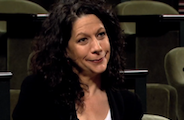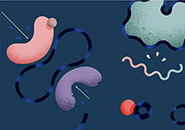Science Education Priority
Children are born scientists. They explore, observe the world around them, and test ideas. But the science they are taught in school often fails to engage their natural curiosity.
Today’s K-12 science education places too much emphasis on discrete facts and offers too few opportunities for students to experience discovery first-hand, according to a report by the National Research Council (NRC).
Even very young students have the capacity to learn from inquiry-based teaching methods, which require them to make observations, collect evidence, think critically, and use their findings to make predictions. Many studies and reports have found that inquiry-based science teaching is effective as early as kindergarten. The NRC calls an inquiry-based approach an “essential element” of any science curriculum.

As classrooms shift to inquiry-based teaching, we need to prepare teachers to convey the principles that form the foundation of scientific thought. Over their careers, well-trained teachers will use these skills to engage the thousands of students who enter their classrooms. And the impact could be dramatic. One study suggests that stronger teachers could help add $50 trillion to the U.S. economy by 2090.
HHMI funds an array of innovative programs to prepare science teachers to train and inspire the next generation of scientists. These programs take three distinct approaches:
1. Accelerate teaching programs for science students in college who want to pursue careers in education.
Talented science students who are interested in pursuing teaching careers may be discouraged by the time and cost required to earn a teaching certificate. Lowering or removing these barriers can grow the pool of knowledgeable teachers in training.
They did it: Since 1997, the University of Texas at Austin’s UTeach program has paid for science students’ first two teaching courses and allowed students who earn a STEM degree to add a secondary teaching certification in as few as 120 hours, instead of a year. Of the program’s 675 graduates, 88 percent entered the teaching profession and 80 percent are still teaching five years later. UTeach alumni have taught more than 350,000 secondary STEM students. Versions of UTeach are now offered or are being developed at 29 schools.
Read More About It
AT HHMI:
AND BEYOND:
2. Give pre-service science teachers authentic research experiences.
Long before they are hired by a school, teachers in training rehearse their skills in the classroom. In the same way, science teachers should be equipped with first-hand research experiences. These experiences allow them to understand – and better teach – the tenets of inquiry-based science.
They did it: Western Michigan University, the sixth-largest producer of teachers in the U.S., recently launched a program for pre-service science teachers to do a summer research project with a scientist. After the project, students translate their experiences into inquiry-based science lessons through a teaching practicum. The first class of 15 students finished their research in 2011 and began teaching in 2012. Early reports suggest that the approach is improving the lessons these young teachers create, and has boosted their students’ enthusiasm about science.
Read More About It
AT HHMI:
AND BEYOND:
3. Encourage undergraduate science students to consider education careers.
Students who love the sciences often consider narrow career paths as either doctors or research scientists. But encouraging teaching as a legitimate and meaningful alternative to these options can bring more students with specific scientific interests to the teaching field.
Success story: At Brown University, geneticist Michael McKeown leads a summer program that brings together eight-person research teams, known as learning communities, each summer. The groups work with faculty supervisors to develop interdisciplinary projects while building strong bonds – both socially and academically – with each other and faculty mentors. These bonds last well beyond the summer program and into the school year.
Read More About It
AT HHMI:
AND BEYOND:
RECOMMENDED RESOURCES FOR FURTHER READING:



